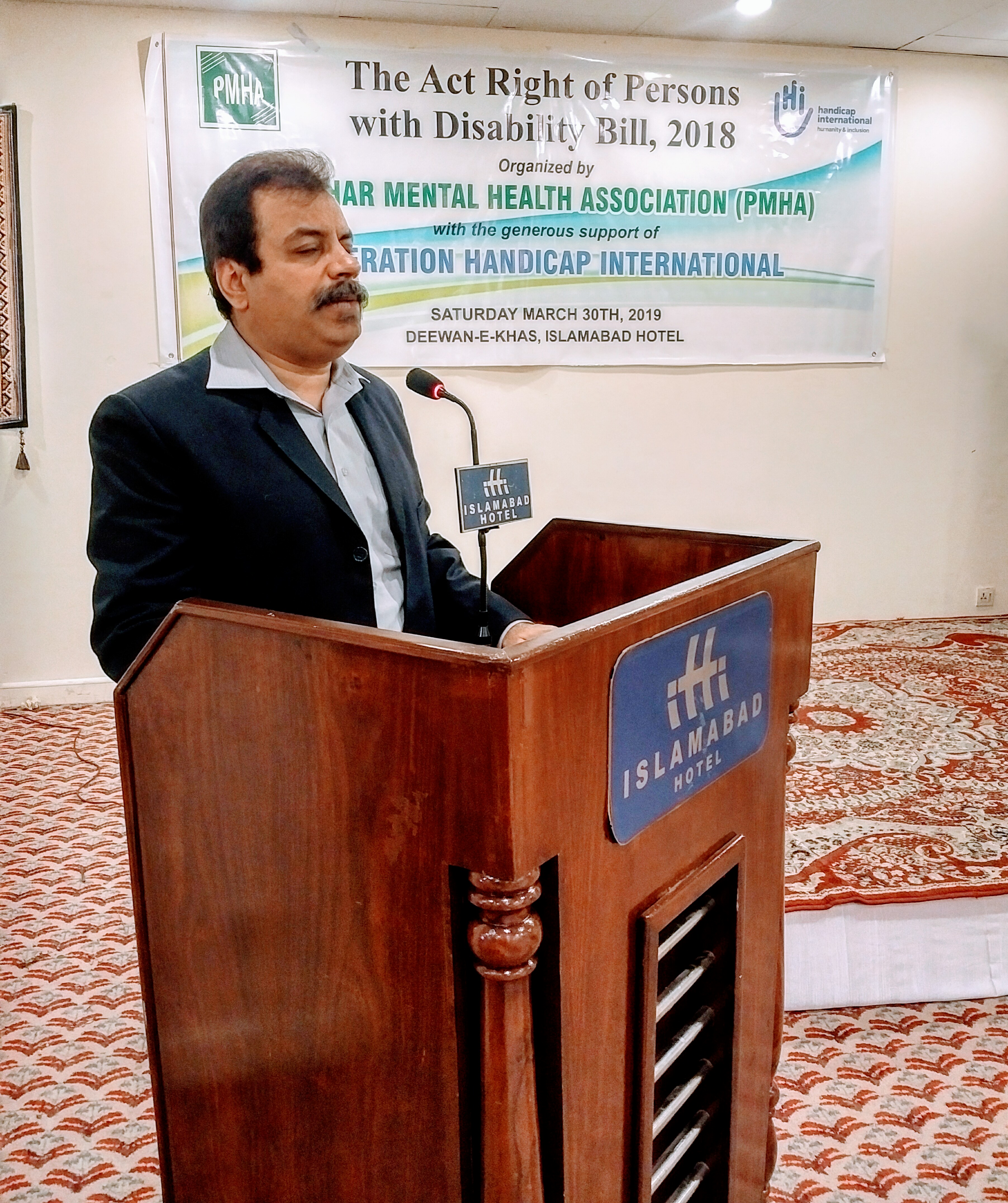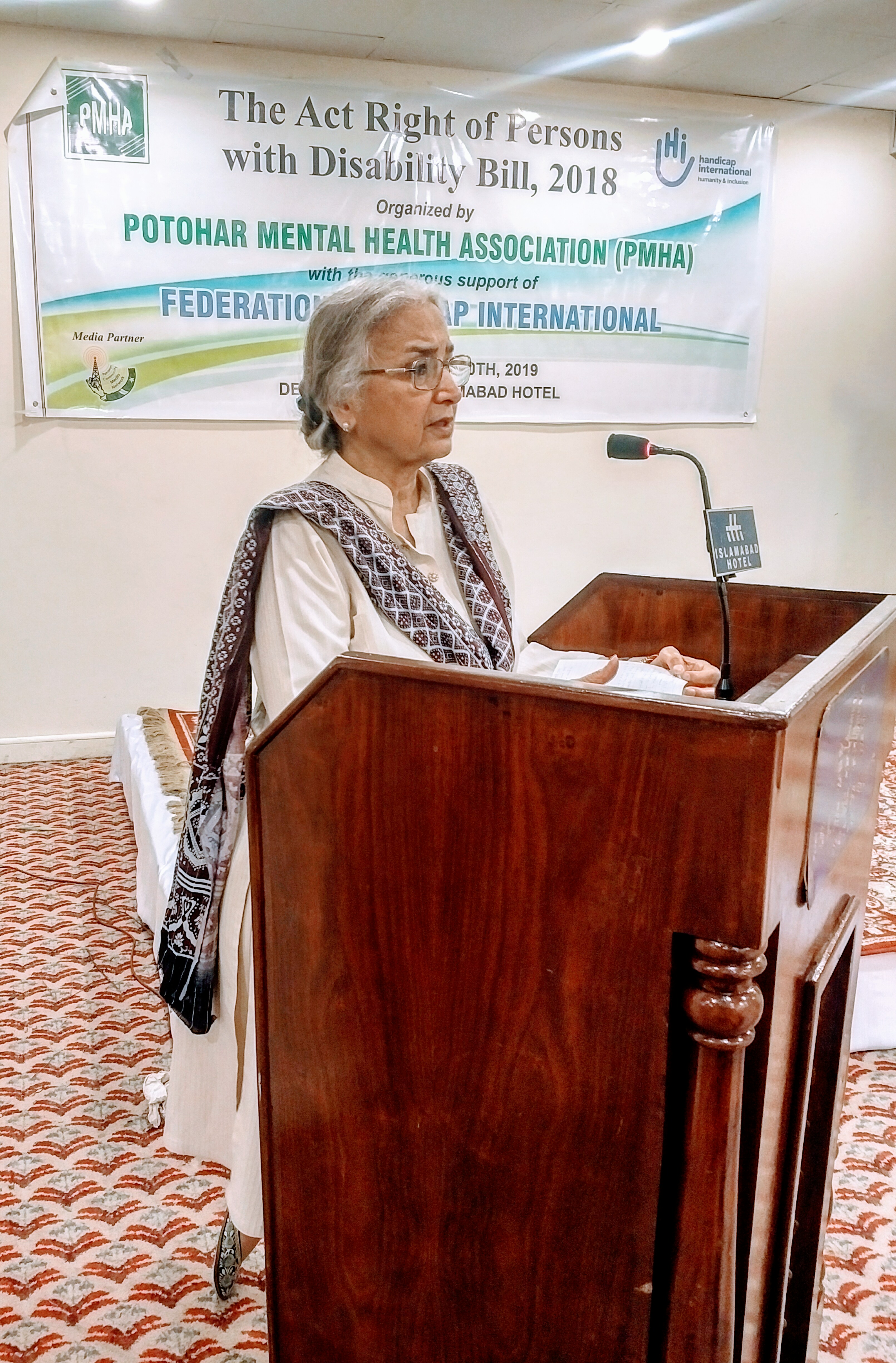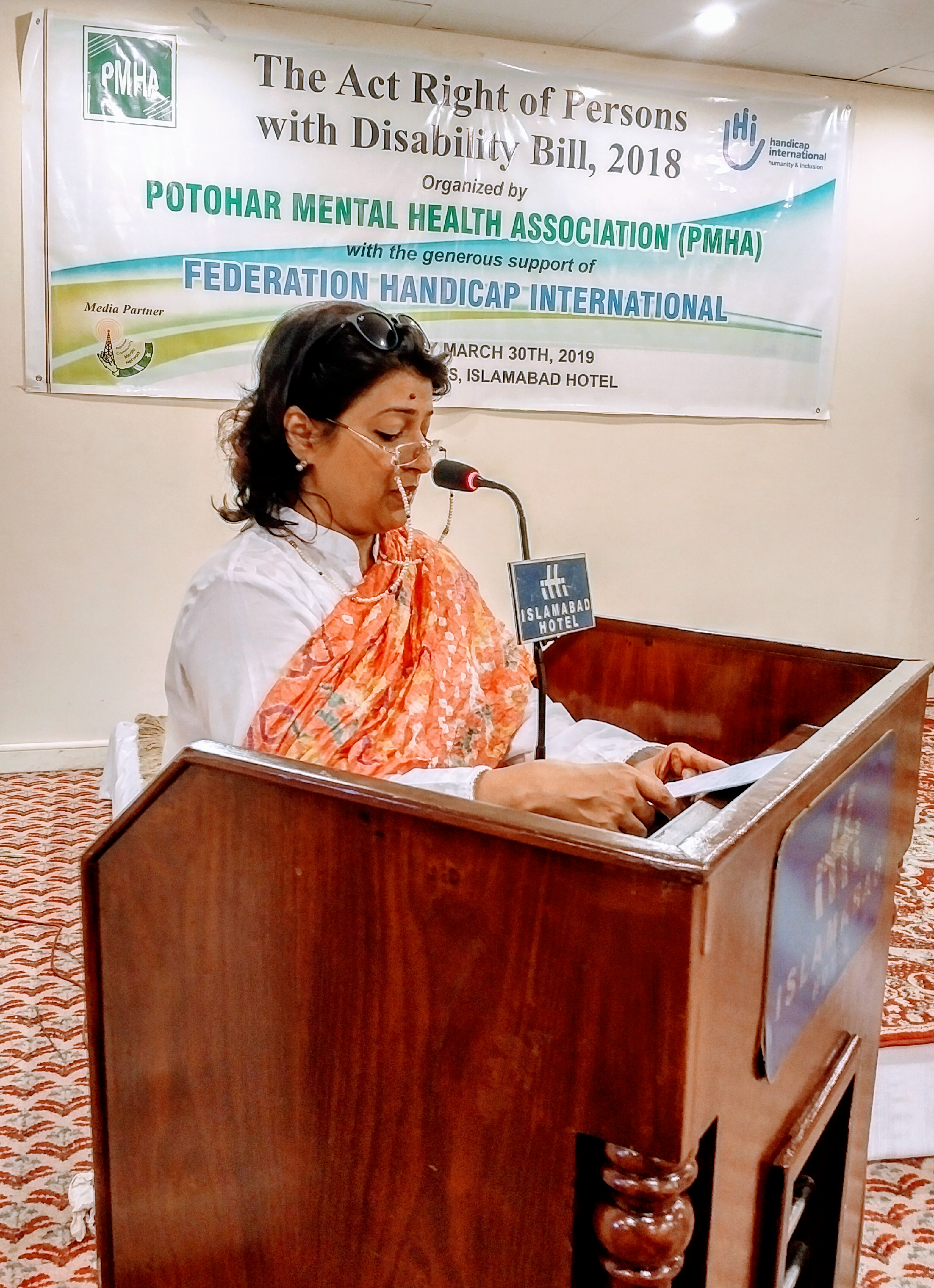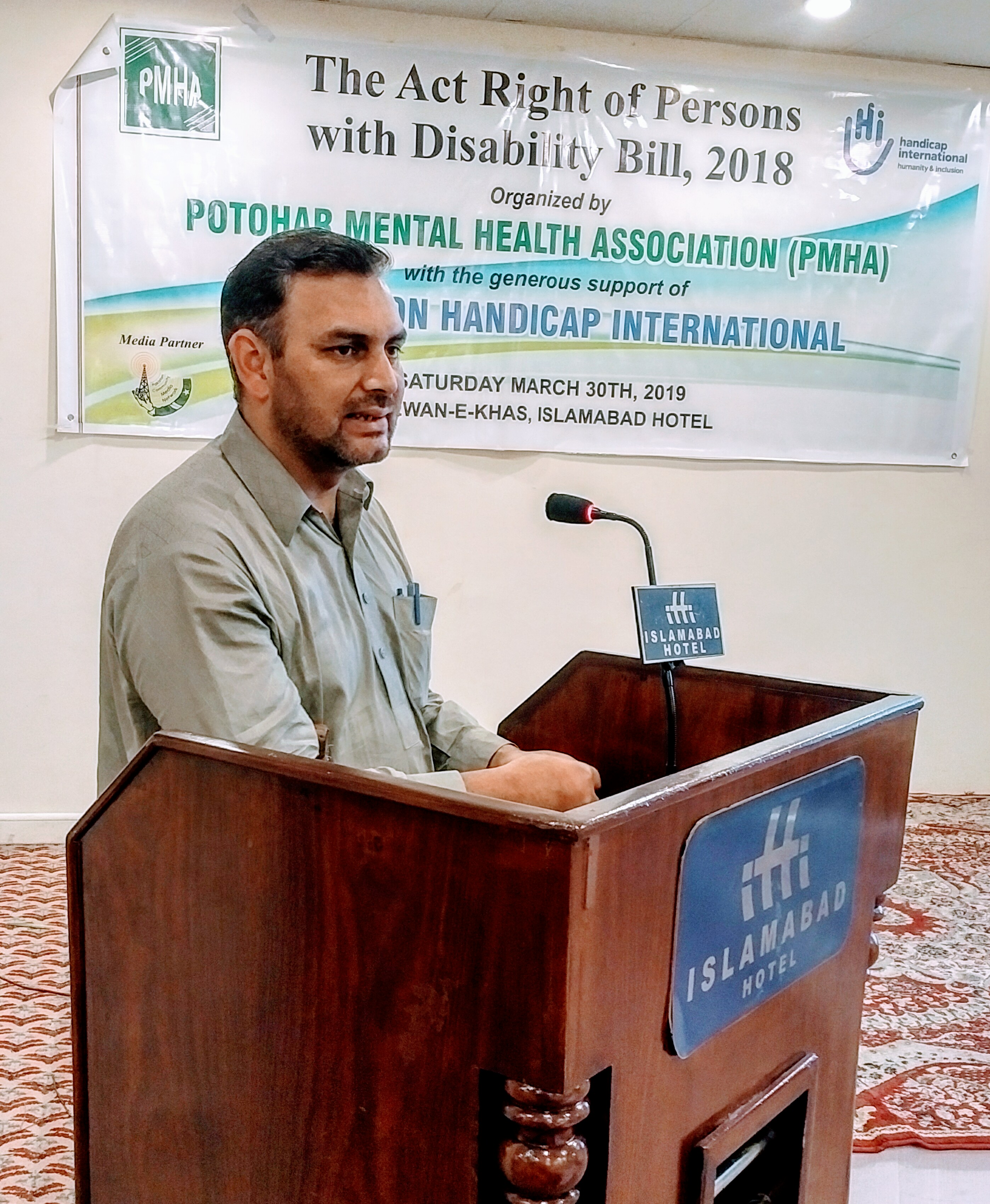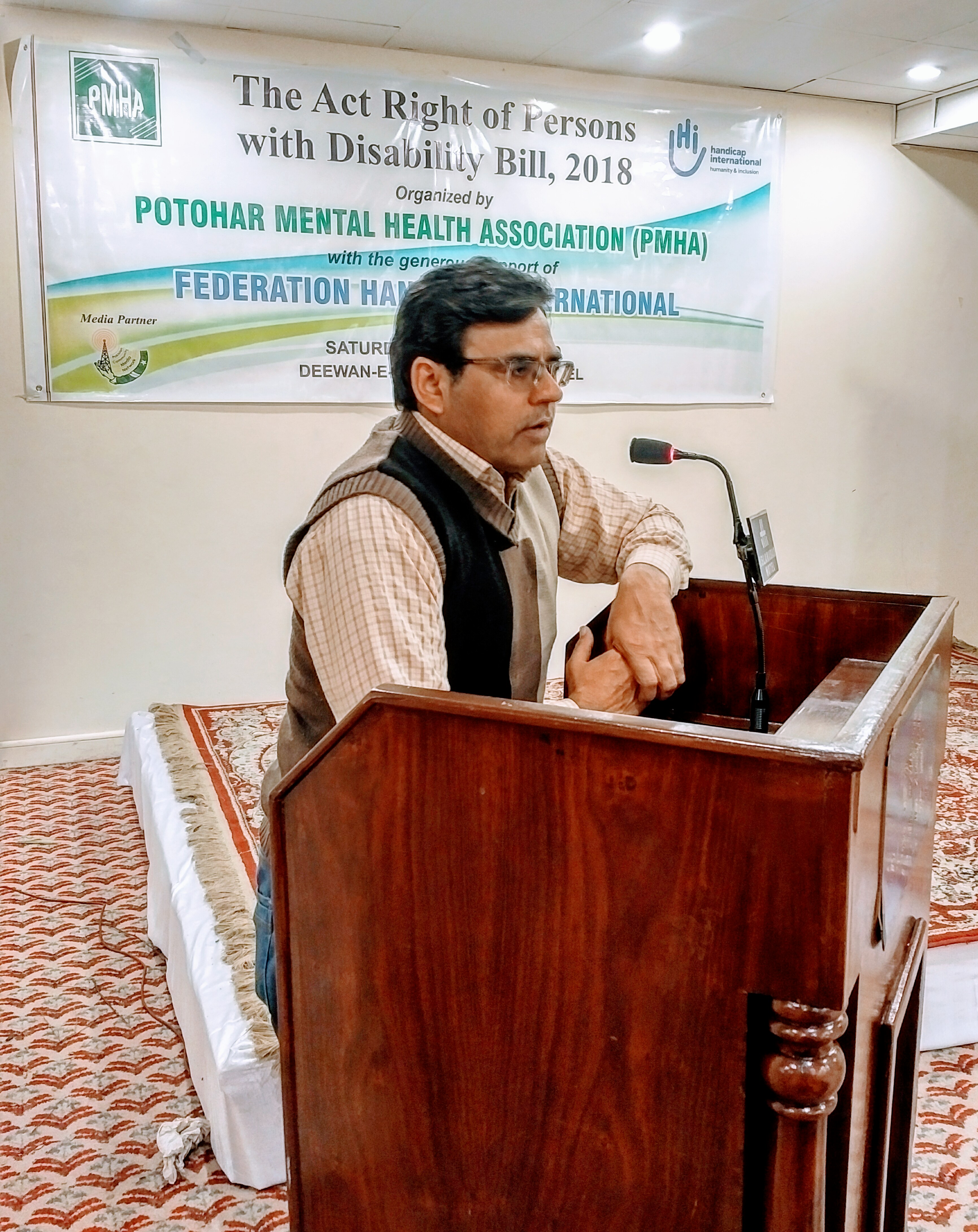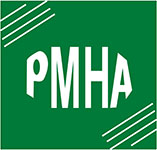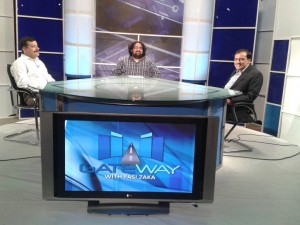‘Voices of persons living with various disabilities should be integrated in the bill to make the legislation more inclusive and comprehensive’
Saturday, 30 March 2019
The government has presented a bill in National Assembly on 23 December 2018 by the name of ‘The Act on Right of Persons with Disability Bill, 2018. This is an encouraging step from the government to ensure persons living with disabilities’ fundamental and civil rights and to mitigate barriers to their full participation in all aspects of society.
Khawar Mumtaz, Chairperson / Minister of State, National Commission on the Status of Women, Government of Pakistan graced the occasion and commended the much-needed gathering and discussion on the issue. After reviewing the bill, she stated that it is apparent that persons living with disabilities have not been consulted in the drafting process. She stressed the importance of the voices of persons living with various disabilities to be integrated in order to make the legislation more inclusive and comprehensive. The bill also lacks categorization / segregation of persons living with disabilities as there is little understanding of the typologies, definitions, and issues specific to persons living with disabilities. This will in turn inform the accuracy of the state’s response and planning and allocation of services and resources for persons living with disabilities.
Furthermore, the need to mainstream persons living with disabilities in all aspects of society was also highlighted, especially their political and social inclusion such as, right to political assembly to increase representation and tabling of issues. Finally, there was an emphasis that the formation of the committee regarding the bill should include the voices and expertise of key persons involved, especially persons living with disabilities.
Zulqurnain Asghar, Chief Executive, Potohar Mental Health Association (PMHA), stressed the need for a thorough review of the bill and comprehensive legislation at national level to be introduced addressing and mitigating barriers which continue to marginalize persons living with disabilities, approximately 15% of the Pakistani population or 33 million people. Asghar also stated that ‘other than the 1981 Ordinance, we don’t have any legislation at national level’. Once the law is passed, amendments are difficult to make. He emphasized that the passing of a comprehensive bill will simplify the process of devolution of this bill into other provinces.
Malik Muhammad Nawaz, Disability Inclusion Advisor, Federation Handicap International, highlighted the three main barriers faced by persons living with disabilities in Pakistan: environmental, attitudinal and institutional. He calls for the reviewing of existing and future environmental and institutional plans to ensure the application of a disability lens regarding the accessibility of public spaces, buildings, floors, offices, washrooms, and various facilities and services in order to enable full participation of persons living with disabilities. Nawaz also highlighted the evident gaps when comparing the 1998 and 2017 consensus data about persons living with disabilities. The decrease in population of persons living with disabilities is inconsistent with a constant growth of the population and incidents of natural disasters, terrorism, violence and number of internally displaced persons (IDPs). Nawaz stressed that if facilities and funding are made according to current data, the bill will fail. There is a need to employ disability-friendly mechanisms and tools to ensure accurate data collection of persons living with disabilities and ensure the accurate allocation of budget and resources on this issue.
Amjad Nazeer, Executive Director IDRAC, emphasized the role of members of political parties and those in positions of power to consider the steps that need to be taken towards the inclusion and promotion of the human, intellectual, personal and political agency of persons living with disabilities. He stated that persons living with disabilities are a great human resource and their voices need to be considered in all aspects of society. In light of the recent elections, persons living with disabilities expressed and reaffirmed attitudinal, environmental and institutional barriers which excluded them from the political participation and exercising of democratic rights. This included persons living with disabilities reporting hostile and abusive behavior< and disregarding of their concerns furthering their experiences of exclusion. Nazeer suggested the use of mechanisms and tools, such as the use of assistive devices, braille and other sensory software, and for positions to be allocated to persons living with various disabilities during the electoral process as they can play a vital role and use exert their rights as citizens of the state.
Hadia Nusrat, Program Manager, Gender Justice, Oxfam Pakistan, appreciated the government’s efforts in addressing and ensuring the fundamental human and civil rights of persons living with disabilities. However, the language of the bill is gender-blind and not representative of various persons living with disabilities, especially women. She highlighted that other than in regard to reproductive health, there is no mention of women living with disabilities in other clauses. She further recognized the importance of the bill to be intersectional as there is a direct correlation with poverty and persons living with disabilities. Women living with disabilities face different and more barriers as compare to men living with disabilities. Disability-sensitive and gender-inclusive language is important in ensuring the inclusion of all persons living with disabilities and the successful implementation of the bill.
These thoughts emerged from the consultative dialogue on “The Act on Right of Persons with Disability Bill, 2018”, organized by Potohar Mental Health Association (PMHA) with the generous support of Federation Handicap International, Pakistan.
